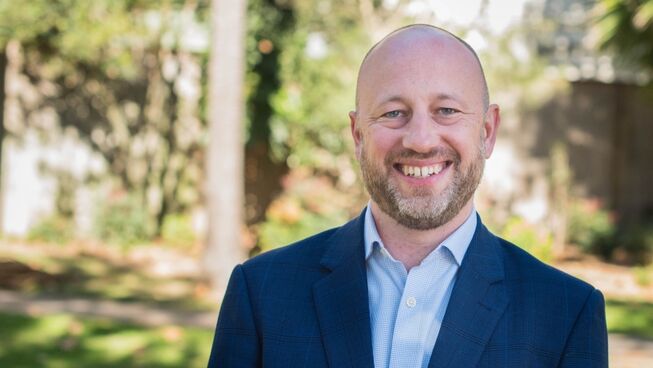"So, what do you do for work?"

“Hi there, my name is Andrew. What do you do for work?”
Sound familiar? Chances are, one of the first things that you do when you meet a person is find out what they do for work. Based on that answer, we often then make an assessment of them.
For a period of four years I worked part-time as a radio newsreader and part-time as a minister in a church. When people asked what I did, I’d normally tell them about both jobs. But if pressed for time I’d sometimes only have the chance to tell them what I’d been working on that day. I learnt very quickly that depending on which job I mentioned their response would be entirely different!
We live in a culture of “I am what I do”. We make assessments of people based on their work. But it hasn’t always been this way. In fact it’s a fairly recent phenomenon. In previous generations we might have been more interested in which family a person belonged to, or community they came from. We made assessments of people based more on their collective identity.
Today however we live in a much more individualistic culture. As French philosopher Luc Ferry writes, we live in a time when “the individual [is] the centre of the universe, and the creature beyond all else entitled to absolute respect” (1). Each human is “an end in himself”. So who I am, my worth and my value, is not determined by the collective, but by my individual achievements.
And where do I do most of my “achieving”? The workplace. As Ferry continues, “Work becomes the defining activity of man: a human being who does not work is not merely poor – without income – but impoverished, in that he cannot realise his potential and his purpose on earth…In the modern world-view, [work] becomes an arena for self-realisation, a means not merely of educating oneself but also of fulfilment and improvement” (2).
“Potential” and “purpose”. “Fulfilment and “improvement”. We’re thirsty for these things, and in our day and age we look to work to satisfy them. Which is fine if you’ve got a great job. Or a job that you love. A job that satisfies. A job that those around you value and esteem.
But what happens if you don’t? Or what happens when you lose it? Or when you retire from it? Who are you then? A friend of mine recounts the story of meeting a former senior executive of a large company who had just retired. The man introduced himself, saying, “Hello, I’m Bill. I used to be somebody”. My friend writes, “He was half-joking but, in the way he said it, he was unintentionally revealing his struggle with the loss of the position of power and respect he had once held. Clearly he felt the loss of a chunk of his own self-esteem and a part of his identity now that he was ‘just a retiree’, rather than the head of a large company” (3). If we spend our life living by the philosophy “I am what I do” at the end we find it to be a miserable philosophy to have lived by. It doesn’t satisfy the thirst.
I suspect this might be a large part of the reason why Australians change jobs so frequently. A few years ago Fairfax reported that “Australians who have been in their jobs five years or more are unusual. The latest comprehensive survey of labour mobility found 56 percent of Australia’s 11.5 million workers have been in their jobs fewer than five years. And 20 percent have been in their jobs less than a year” (4).
Why are we going from job, to job, to job? Is it not in large part that we’re thirsty to achieve our value, meaning and worth through our work. Our “potential” and “purpose” to quote Ferry. We’re trying to find “fulfilment” and “improvement”. Our identity. And if this job doesn’t do it then we go to another, then another, then another…
This reminds me of a woman Jesus met. She wasn’t going from job, to job, to job, but from man, to man, to man. And like many of us eventually find with our work, she had found that relationships weren’t ultimately satisfying her. Placing all her hopes on relationships to satisfy and fulfil her had only left her empty. Placing all our hopes on work to satisfy and fulfil us only leaves us empty. Still thirsty.
But then Jesus speaks to this woman the most amazing words. “Whoever drinks the water I give Him will never thirst” (John 4:14). Jesus says I know about your thirst to be valued, to find meaning. To find who you are – your identity. To be satisfied. And here’s the amazing thing. He doesn’t say these are wrong things to want. No, these are entirely right and appropriate thirsts. Rather, Jesus says, “I don’t want to do away with your thirsts. I want to satisfy them”.
How does He satisfy them? With His very self. He says to this woman don’t keep looking to relationships to satisfy you. He says to us don’t keep looking to work to satisfy you. Look to me. Come to me and you’ll never be thirsty again. In Him we find meaning and purpose for life. In Him we find our value and worth. In Him we find out who we truly are – our identity. In Him we are satisfied.
So have you found Him? If not, I encourage you to find Him. To consider Him and see if He really does satisfy all your thirsts. Because is your work really able to do that…really?
1. Luc Ferry, A brief history of thought, 122.
2. Luc Ferry, A brief history of thought, 126-127.
3. Graham Hooper, Undivided: Closing the faith-life gap, 91.
4. Peter Martin, “Moving between jobs the norm in turbulent market”, September 5, 2012.
Image courtesy: news.bbc.co.uk







